Mozambique: One local killed, another wounded as insurgents invade Nampanha
Hidden debts: Trial remains public, rules judge – AIM report
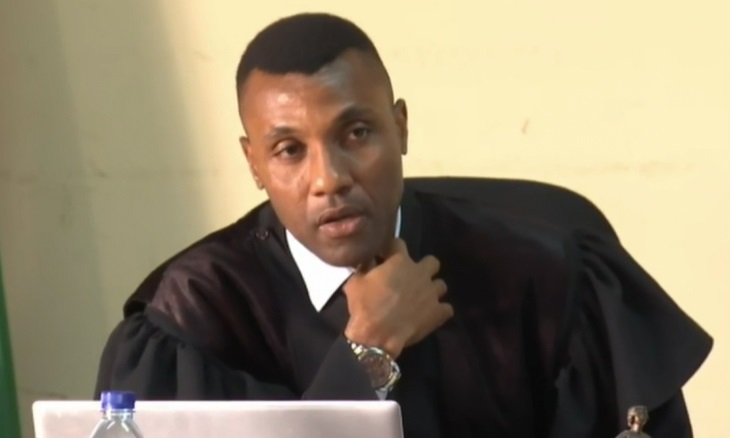
Photo: O País
Judge Efigenio Baptista, of the Maputo City Court, on Tuesday ruled that the appeals against the seizure of assets in the case of Mozambique’s “hidden debts” will remain open to the public.
Back in August last year, some of the defence lawyers demanded that press and public be excluded from the trial of the 19 people accused of money laundering, embezzlement and other financial offences in connection with the debts. Baptista rejected this call, and so on some television channels (though not on the public broadcaster, TVM) the entire trial was transmitted from beginning to end.
The taking of evidence, including the hearing of witnesses, has now concluded, and the trial has moved to consider the seizure of assets from the accused. Defence lawyers argued that this is a different phase, and so the judge’s August ruling no longer holds.
But Baptista declared “The law does not distinguish between types of hearings during the trial”, and all were covered by his ruling.
He also insisted that he is simply upholding the Mozambican Constitution, which states that criminal trials are held in public except when “safeguarding personal, family, social or moral intimacy (i.e. cases of sexual offences), or powerful security or public order reasons advise the exclusion or restriction of publicity”.
The defence lawyers, however, based their case on the Penal Procedural Code, which allows the press to be thrown out of trials at the request of the accused. Baptista argued that this clause in the Code is unconstitutional, and so he would not obey it.
The Public Prosecutor’s Office has submitted a list of properties that it wants the court to seize. The assets will be seized temporarily, until the court reaches a verdict on the guilt or innocence of the accused. If the assets are definitively seized, they could go towards compensating the Mozambican state for the losses caused by the hidden debts.
Tuesday’s hearing allowed defendants to explain why their properties should not be seized. Baptista asked three of the accused about their assets. First to be questioned was Antonio Carlos do Rosario, once the head of economic intelligence in the state security service, SISE. Over 40 of the houses, flats, offices and other properties on the prosecution list are believed to be owned by Rosario, in Maputo and in the central city of Quelimane.
Baptista also questioned Ines Moiane, once the private secretary of former President Armando Guebuza, and Angela Leao, wife of Guebuza’s security chief, Gregorio Leao.
All three were asked whether the properties on the list did indeed belong to them. Rosario tried to draw a distinction between his own houses and those owned by the company Txopela Investments – but the prosecution argues that Txopela is entirely controlled by Rosario.
Moiane claimed that one house on the list does not belong to her personally, but to her family, while Angela Leao said she has nothing to do with one of the companies that owns some of the properties (but in which her husband is the main shareholder).
The lawyer for Moiane and Rosario accused the prosecution of “subverting our national independence”. This was because the initial list of assets to be seized included “plots of land”. Since both the Constitution and the Land Law state that land cannot be bought, sold or otherwise alienated, this phrase could give the impression that the prosecution was illicitly in favour of land privatization.
Prosecutor Sheila Marrengula insisted that the prosecution did not want to seize land itself, but only the titles to land (known as DUATs). If, as the defence was arguing, the DUATs were as untouchable as the land, “then they can be used for money laundering purposes”.
The hearing continues on Wednesday when several other defendants will argue why their properties should not be seized.
Right at the start of the trial, last August, the prosecution demanded compensation for the state of 2.9 billion US dollars. This sum is the entire 2.07 billion dollars of loans obtained by the three fraudulent, security-linked companies Proindicus, Ematum (Mozambique Tuna Company) and MAM (Mozambique Asset Management) from the banks Credit Suisse and VTB of Russia, through the use of illicit state loan guarantees, plus interest.


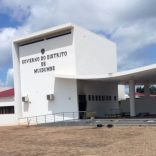
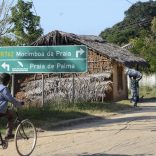


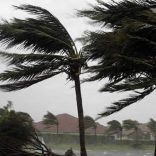



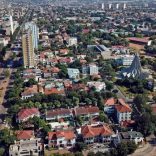

Leave a Reply
Be the First to Comment!
You must be logged in to post a comment.
You must be logged in to post a comment.